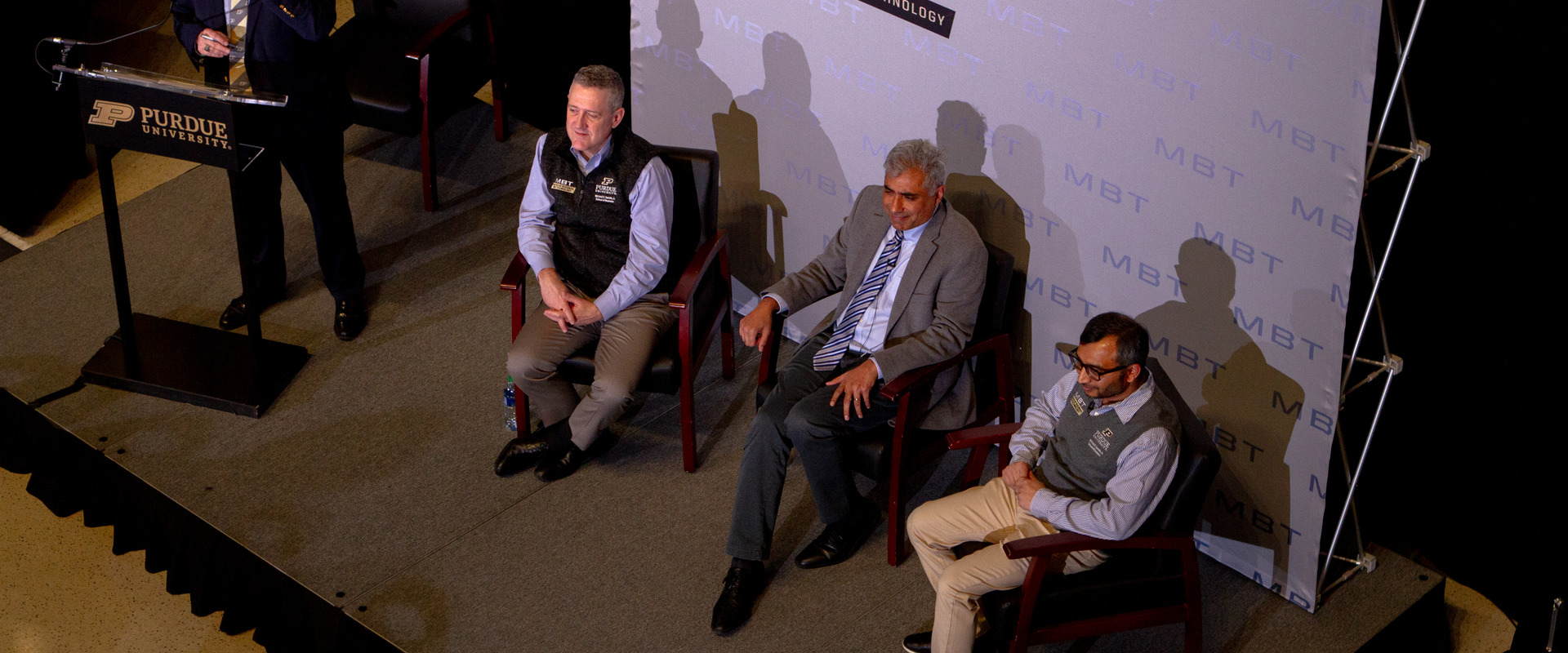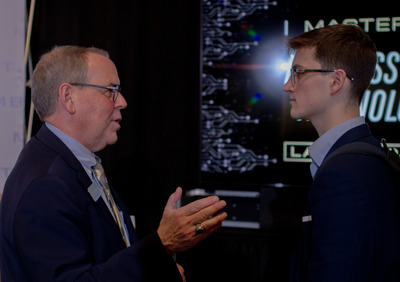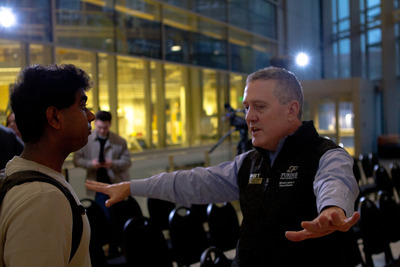
In today’s world, every business must integrate technology across its functions to stay competitive and to future-proof itself from disruptions, foreseen or not. Organizations seeking to maintain their edge need professionals with a deep understanding of the granularity around technology in robotic automations, AI (Artificial Intelligence) innovations, commercialization models and fintech.
To help industries navigate necessary integrations, the Mitch Daniels School of Business launched the Master of Business and Technology (MBT). The master’s program equips individual contributors like engineers, technologists and IT (Information Technology) professionals to become decision-makers, expanding their knowledge and skill sets to evaluate tech investments, understanding the implications of technology trends and predicting challenges and opportunities.
The Daniels School consulted with the #4 engineering school in the country to write technology into the DNA of every MBT course. Because “every company is a tech company,” says Mohammad Rahman, Daniels School of Business chair of management, in some form or another, the program centers technology as the solution to business problems and trains individual contributors to fend off disruption
The traditional MBA curriculum, arguably the most familiar to prospective business graduate students, covers the broad spectrum of business disciplines such as finance, marketing, operations, human resources and strategy. Though the MBA rounds out management-oriented individuals, its core curriculum remains embedded in traditional functionalities. It has yet to update in such a way that it integrates technological solutions in the myriad functionalities of any business, including financing systems, global supply chain problems, data engineering to track performances, automations and AI implementations.
The MBT curriculum delves into advanced computing and the societal and economic implications of technology-driven decision-making. It incorporates the trends of innovation in each aspect of business. Every course centers on technological concerns. The program trains individual contributors to formulate tailored solutions, evaluate which technologies industries should adopt and ideate new products and models to market.
“Businesses need people who will approach every business problem asking if there is tech that solves the problem,” says Richard Ryffel, executive director of business leadership.

For instance, Ryffel shares, a $1-billion-dollar company making sophisticated auto parts struggled during the pandemic’s global supply chain shortage. Its engineers called suppliers looking for components. When they couldn’t obtain a, b, c, d and e parts, their engineers were ready to put their skills to work.
“They said, ‘Get me the next five possible parts. We can re-engineer and redesign this.’ This is using technology to solve the problem,” Ryffel says.

MBT and MBA graduates will have common skills like communications, writing and presentation; management and leadership; planning and operations; problem-solving; research; and change management. The difference is that MBT graduates will possess conceptual skills like project management, product management, agile methodologies, data-driven marketing, new product development, computational finance, data analysis, cyber security and automations. The MBT program expands software and technical skills.
Some recent variations on MBAs, particularly the MBA in technology management or tech MBA, may include some of these conceptual skills. However, the MBT establishes candidates in a way that even an MBA in technology management cannot. Rather than retrofitting the traditional MBA program for engineers and technologists, the MBT builds on the students' backgrounds, elevating their thought process for every consideration in the development, adoption and commercialization processes of business.
The Daniels School’s MBT program offers four specializations, should students prefer to delve deeper – AI Innovations, automations and robotics, computational finance, and tech commercialization. Depending on the student’s interests and passions, they’ll be able to pursue leadership or entrepreneurial endeavors. The entrepreneurial candidate would be able to ideate, execute and take to market new technologies. A technologist would lead teams and projects, a manager could engineer a data scraper rather than channeling through IT, and leadership would know how to conceptualize unforeseen implementations to resolve challenges.
“If your goals are moonshot goals, you need to be at the institution that has graduated more astronauts and you need to be in the business school at that institution,” says Ryffel.
Explore our MBT curriculum and make an appointment with our program specialist.
View more about the MBT program:
If you would like to receive more information about pursuing a business master’s at the Mitch Daniels School of Business, please fill out the form and a program specialist will be in touch!